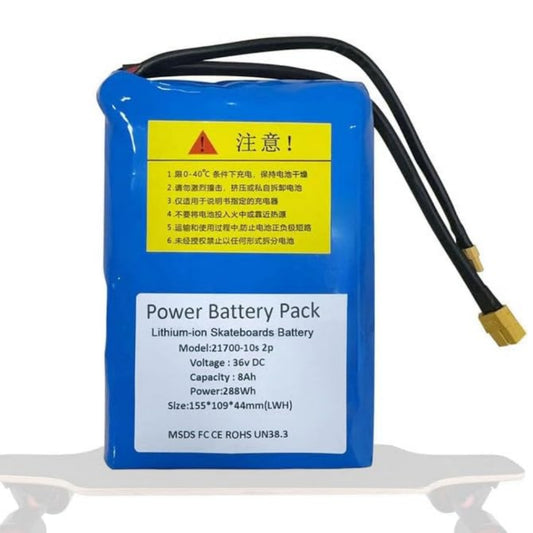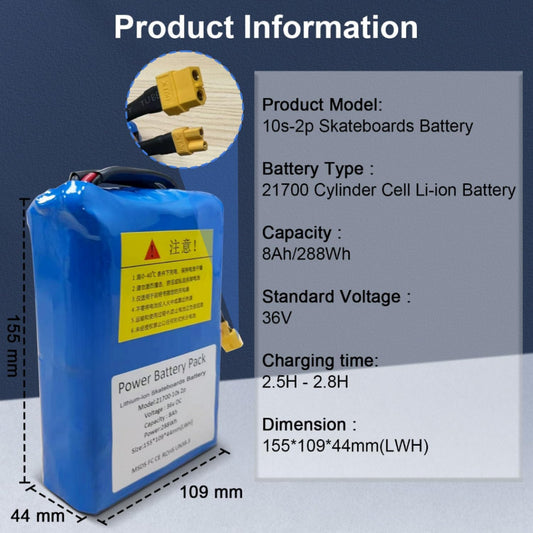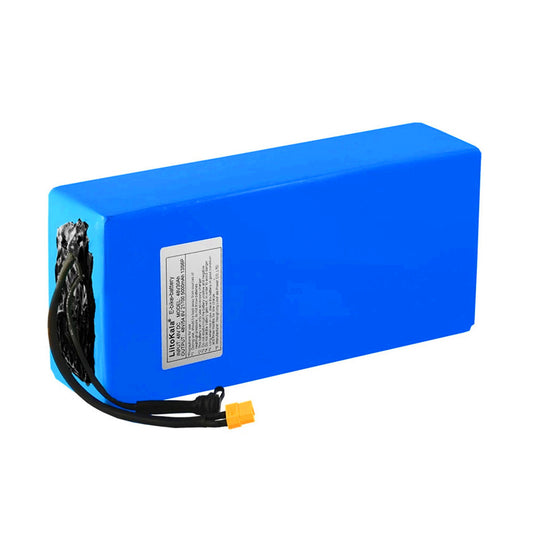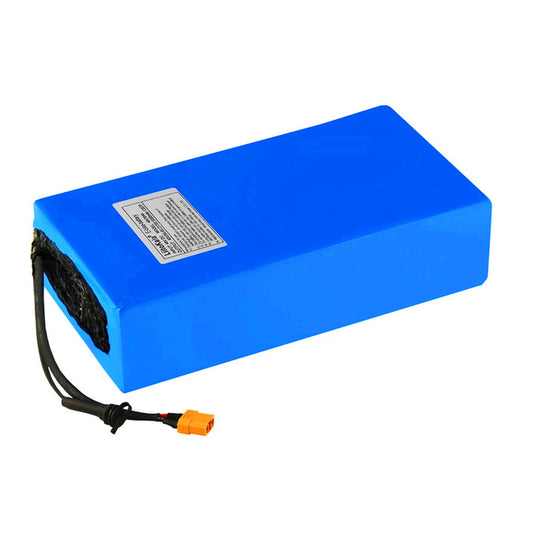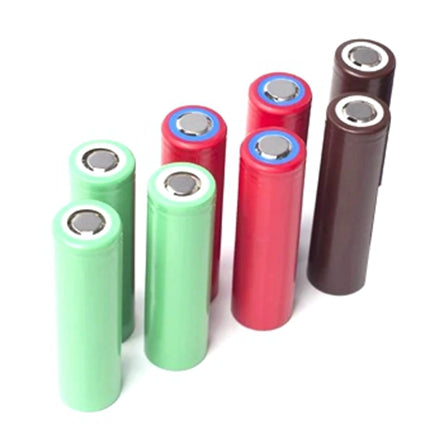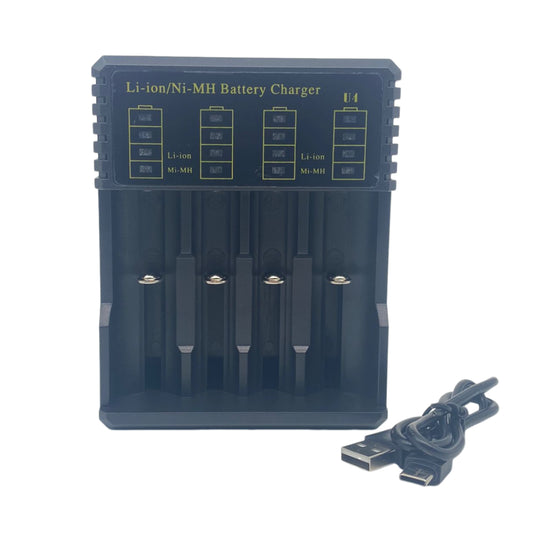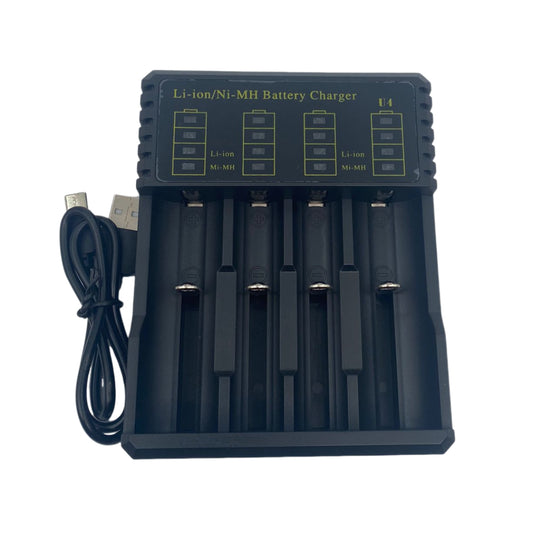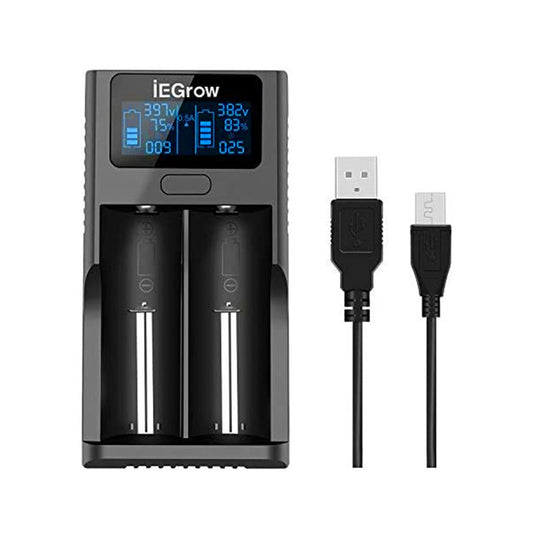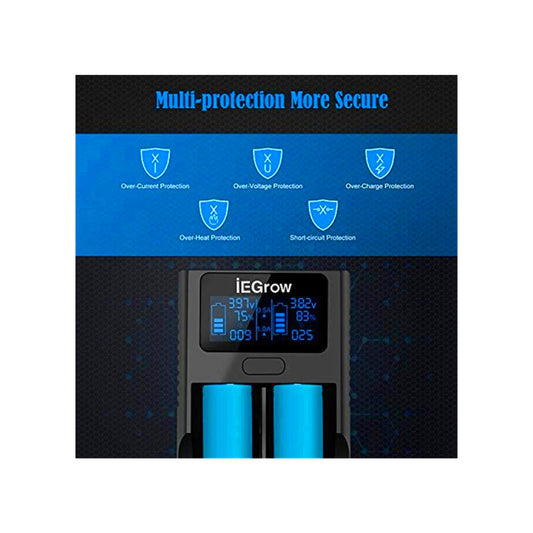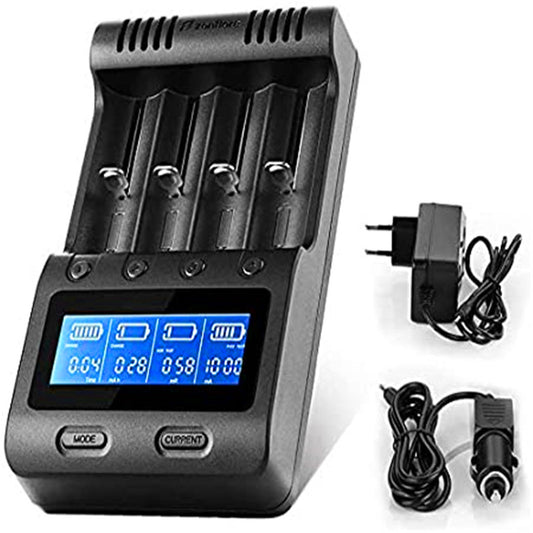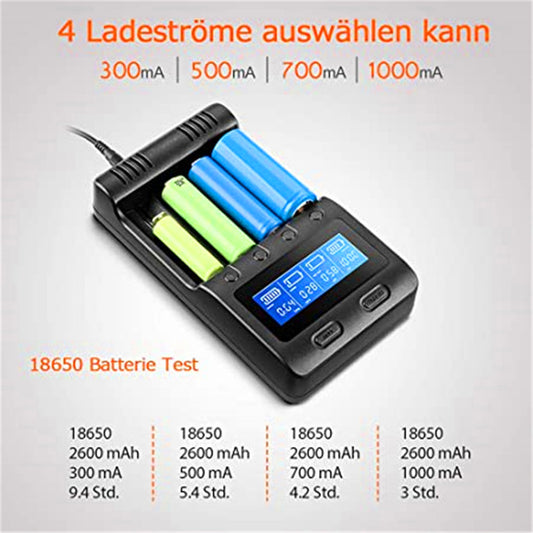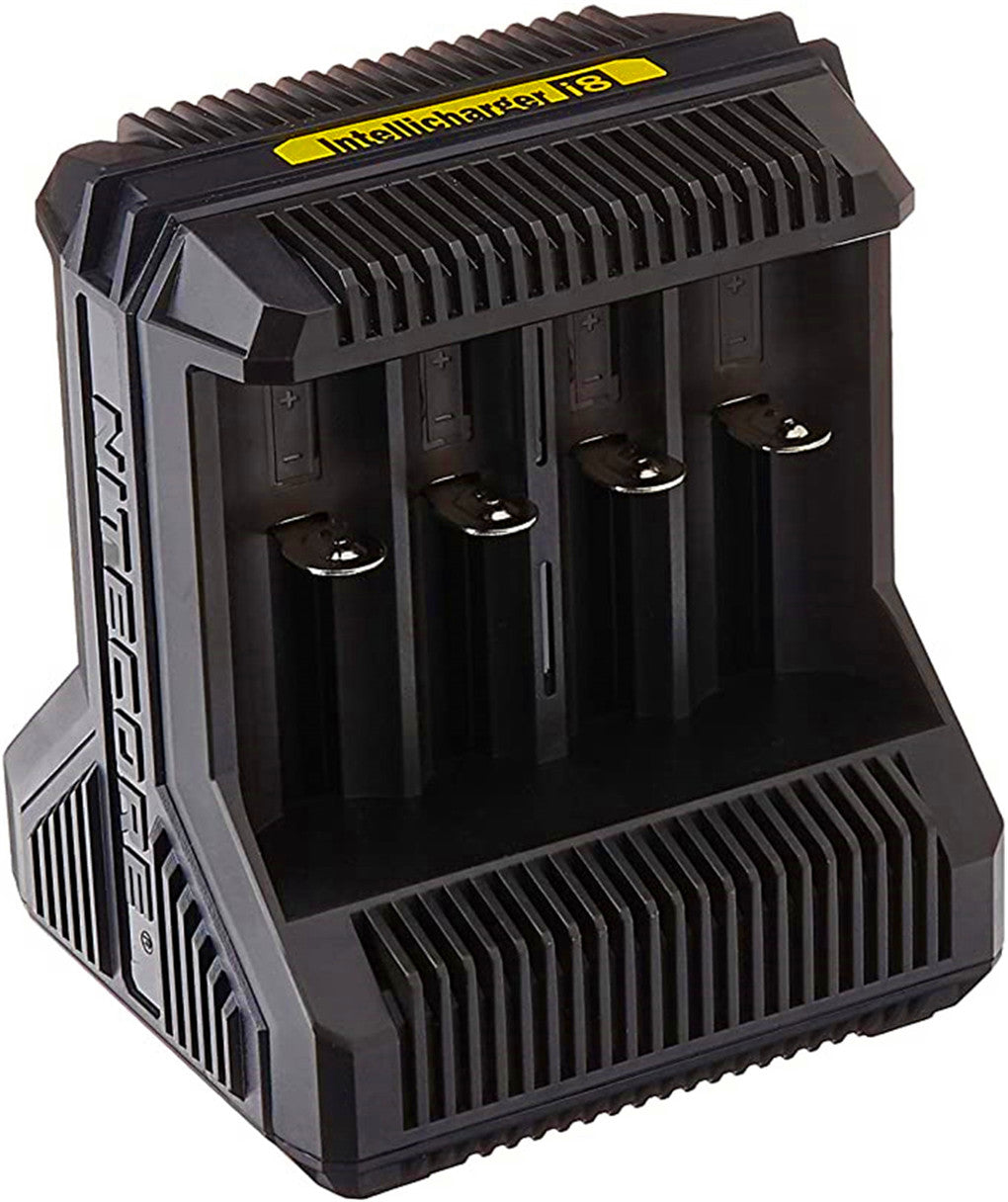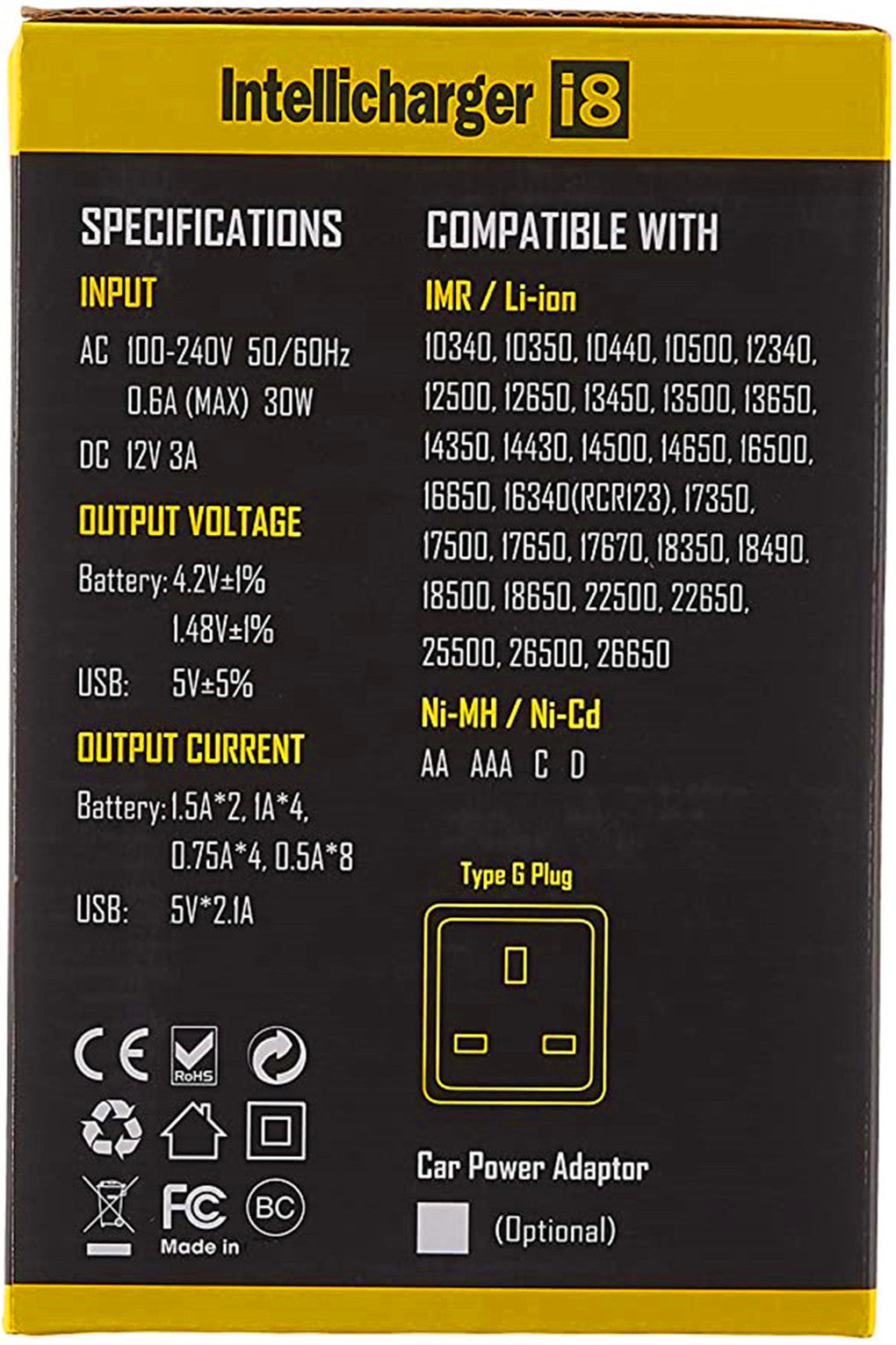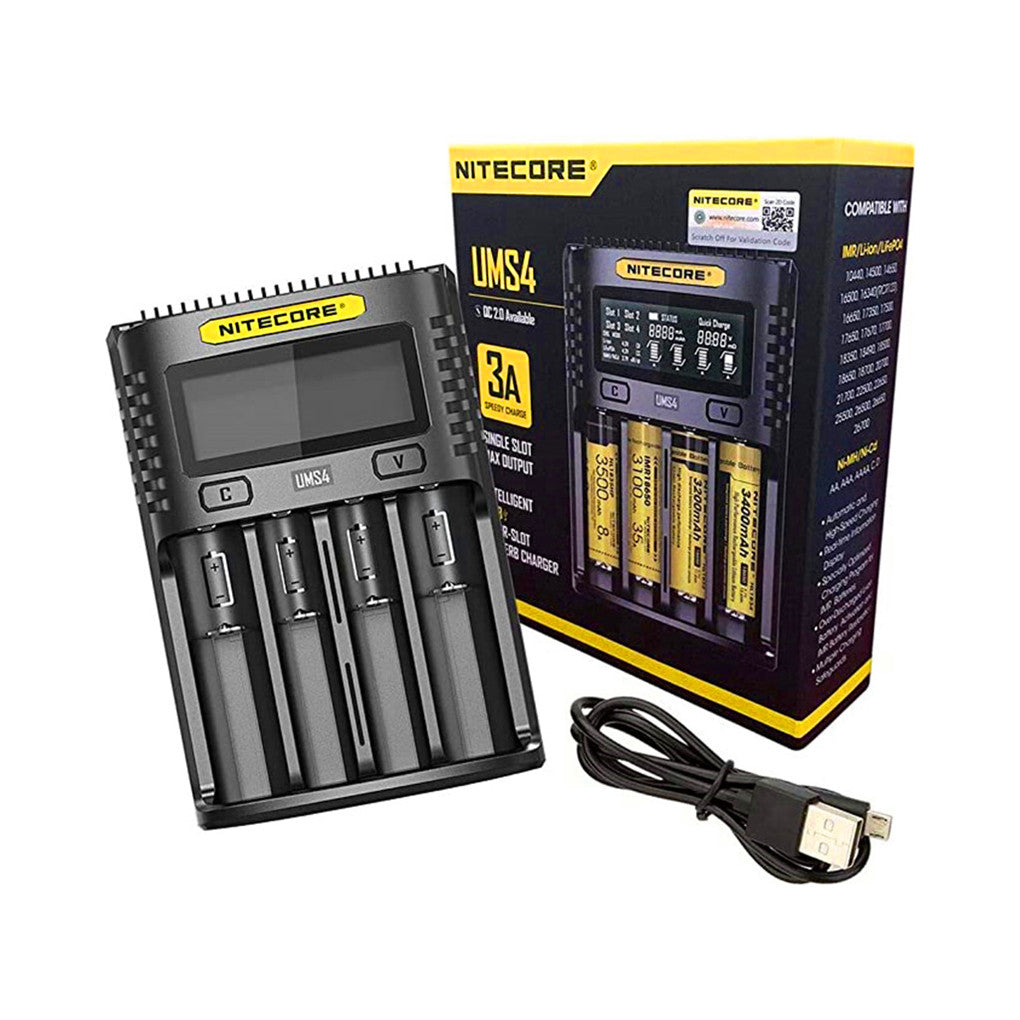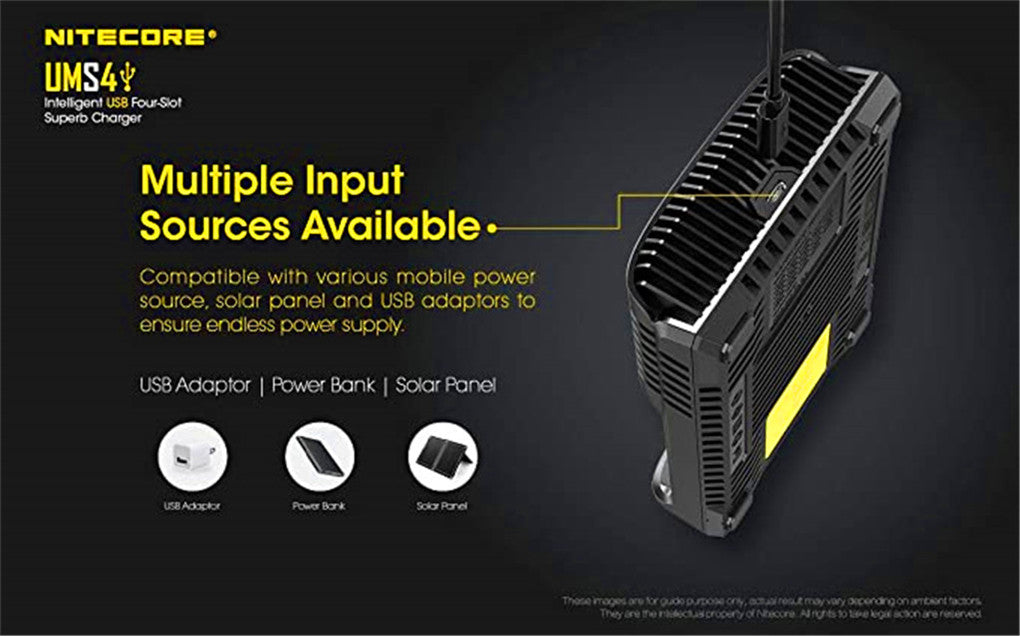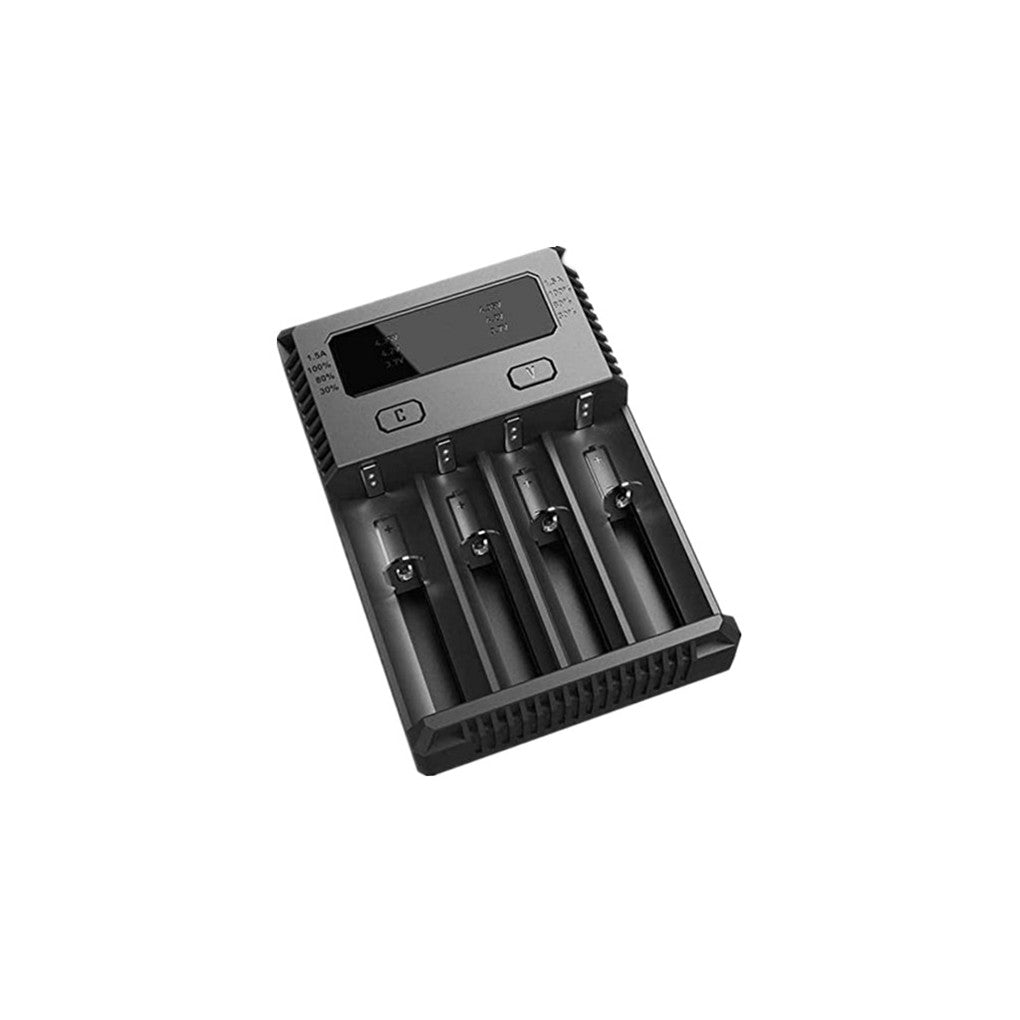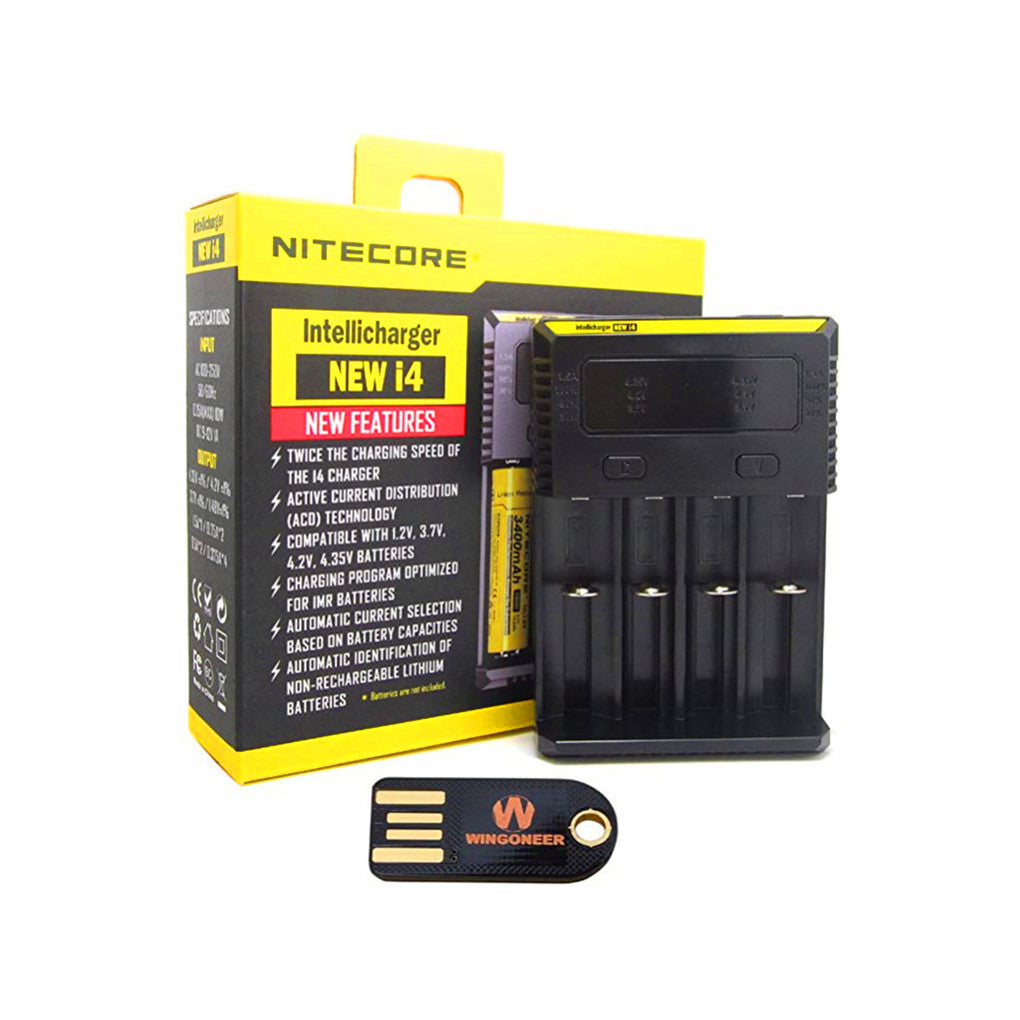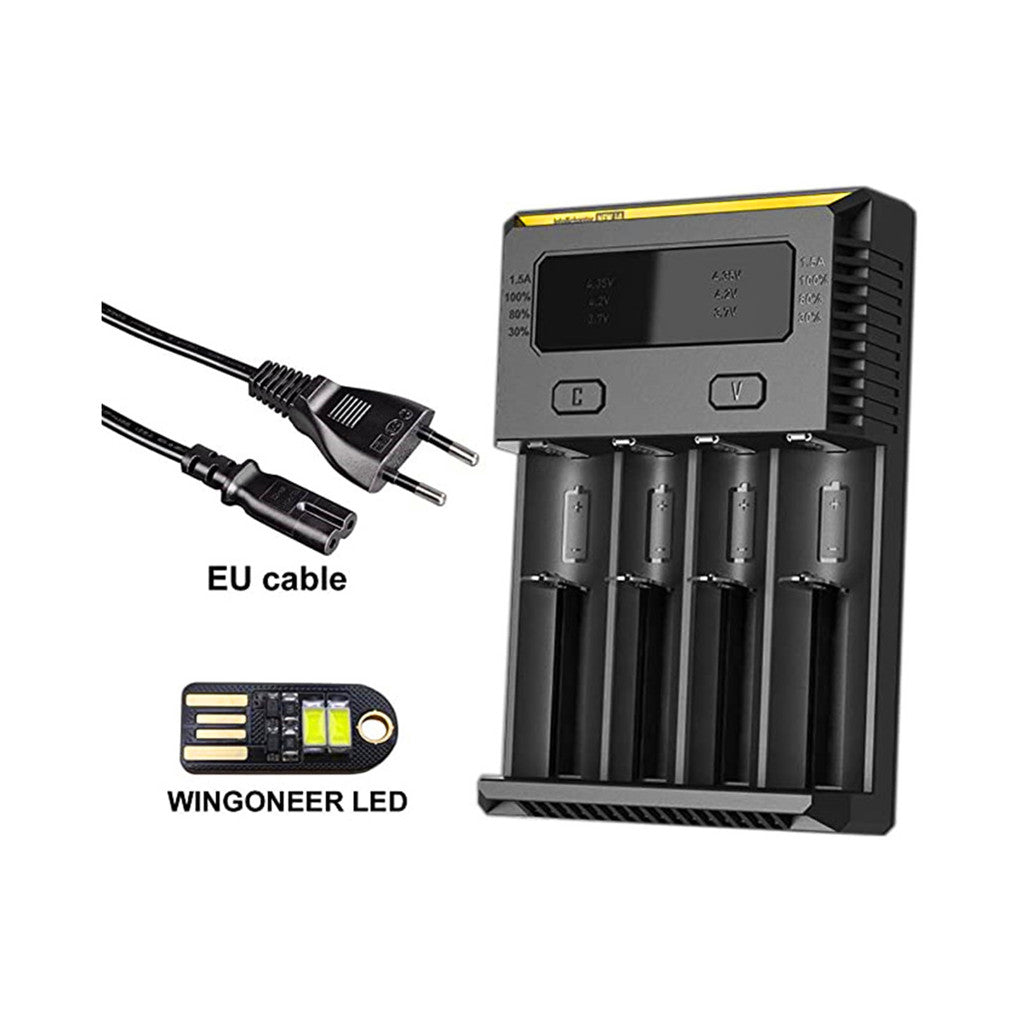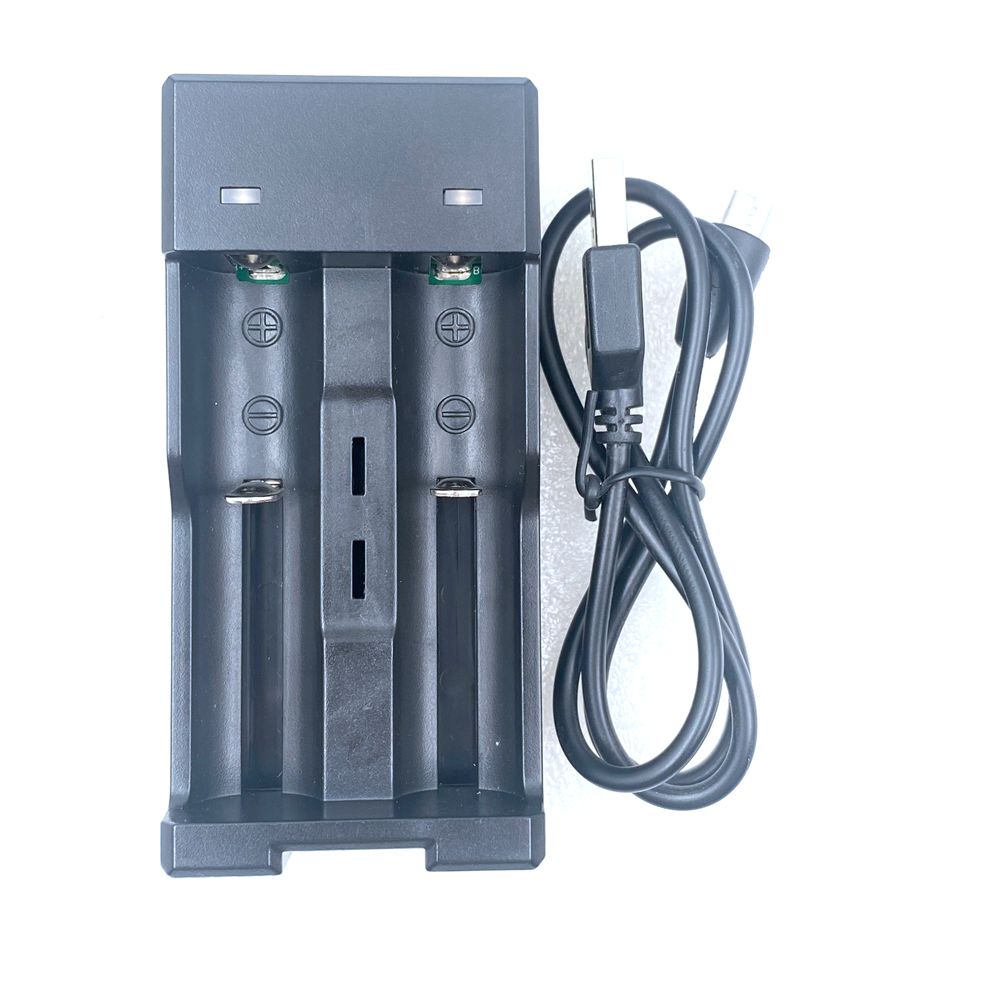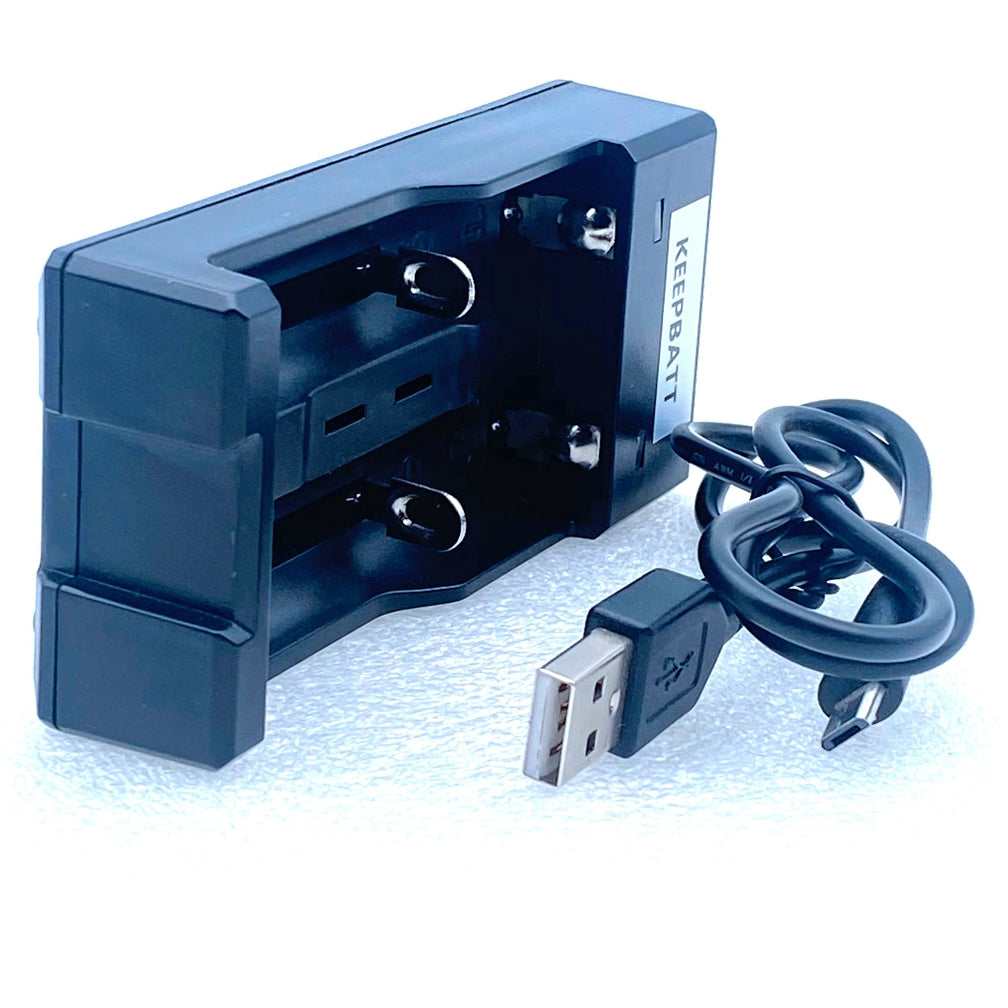-
Vendor:BATTERYINT
Nitecore i8 8 socket charger for lithium ion, nickel-metal hydride and nickel cadmium batteries, black, p
- Regular price
- $55.14
- Regular price
-
- Sale price
- $55.14
- Unit price
- per
Nitecore i8 8 socket charge... -
Vendor:BATTERYINT
Universal charger UMS4 3000 mA USB adult unisex black L 159 x W 107 x H 41
- Regular price
- $42.90
- Regular price
-
- Sale price
- $42.90
- Unit price
- per
Universal charger UMS4 3000... -
Vendor:BATTERYINT
Ums2, black, L: 152 xl: 73 x H: 40
- Regular price
- $28.44
- Regular price
-
- Sale price
- $28.44
- Unit price
- per
Ums2, black, L: 152 xl: 73 ... -
Vendor:BATTERYINT
Nitecore NUi4 4 slot charger for Li Ion, NiMH and NiCD batteries, max.1.5A charging current, I4, black
- Regular price
- $20.40
- Regular price
-
- Sale price
- $20.40
- Unit price
- per
Nitecore NUi4 4 slot charge... -
Vendor:BATTERYINT
New i4 (2016 version) Intelligent Charger Universal smart charger with WINGONEER USB LED light
- Regular price
- $27.80
- Regular price
-
- Sale price
- $27.80
- Unit price
- per
New i4 (2016 version) Intel... -
Vendor:BATTERYINT
KEEPBATT 2 Slot Battery Charger for Li-ion NiMH NiCD Rechargeable Batteries
- Regular price
- $12.99
- Regular price
-
- Sale price
- $12.99
- Unit price
- per
KEEPBATT 2 Slot Battery Cha...
Showing 13 -18 of 18 items
1. What is an 18650 battery charger used for?
An 18650 battery charger is specifically designed to charge 18650 lithium-ion batteries, which are commonly used in flashlights, vape devices, power banks, and other electronics. These chargers ensure that the 18650 battery receives the correct voltage and current to recharge safely and efficiently. Using the right charger for 18650 battery cells is essential for maintaining battery health and ensuring optimal performance over the battery's lifespan.
2. How long does it take to charge an 18650 battery?
The charging time for an 18650 battery depends on the charger’s output and the battery’s capacity. On average, an 18650 charger takes between 2 to 4 hours to fully charge a typical 18650 battery. Some of the best 18650 battery chargers come with fast-charging capabilities, reducing the time required to charge the battery fully. However, it’s important to follow the manufacturer’s guidelines to avoid overcharging and to preserve battery life.
3. Can I use any charger to charge an 18650 battery?
No, it’s crucial to use a charger specifically designed for 18650 batteries. A standard battery charger may not provide the correct voltage or current, leading to improper charging or even damage to the battery. The best 18650 chargers are designed to handle the specific requirements of these lithium-ion cells, ensuring safe charging. Always use an appropriate 18650 battery charger to maintain battery health and avoid potential safety risks.
4. What features should I look for in the best 18650 battery charger?
The best 18650 battery chargers typically offer features like overcharge protection, short-circuit protection, and the ability to charge multiple batteries simultaneously. Additionally, chargers with adjustable charge rates and LED indicators or digital displays are useful for monitoring the charging process. For example, the best 18650 charger will balance safety features with convenience, ensuring that your batteries are charged quickly and safely without the risk of overcharging.
5. Can I charge multiple 18650 batteries at once?
Yes, many 18650 chargers are designed to charge multiple batteries at the same time. A multi-slot 18650 battery charger allows you to charge two or more batteries simultaneously, making it convenient for users with multiple devices that require 18650 cells. The best 18650 chargers include models with two, four, or even six slots, allowing for simultaneous charging with built-in protection against overcharging or overheating.
6. How do I know if my 18650 charger is working properly?
To ensure your 18650 charger is working properly, check for indicator lights or digital displays that show the charging status. Most modern 18650 battery chargers feature LED indicators that signal when the battery is charging, fully charged, or if there’s an error. If the charger or the batteries become unusually hot or if the charger takes an unusually long time to charge the battery, it may be a sign that the charger is malfunctioning and needs to be replaced.
7. Is it safe to leave my 18650 battery on the charger overnight?
It’s generally safe to leave your 18650 battery on the charger overnight if the charger has overcharge protection, which automatically stops charging once the battery is full. However, not all chargers offer this feature, so it's important to check the specifications of your 18650 charger. The best 18650 battery chargers include safety mechanisms that prevent overcharging, which helps protect the battery and prolong its life.
8. What should I do if my 18650 battery charger stops working?
If your 18650 battery charger stops working, first check the power source and ensure that the charger is properly connected. Inspect the charger for any visible damage, such as frayed wires or a damaged plug. If everything appears normal but the charger still isn’t working, it may be time to replace it. Using a malfunctioning charger for 18650 battery can be unsafe, so it’s best to invest in the best 18650 charger to ensure reliable performance.
9. How can I extend the life of my 18650 battery and charger?
To extend the life of both your 18650 battery and charger, follow proper charging practices. Avoid overcharging the battery by removing it from the charger once it is fully charged. Store both the charger and the 18650 batteries in a cool, dry place, and avoid exposing them to extreme temperatures. Regularly check the charger for any signs of wear and replace it if necessary to ensure safe and efficient charging.
10. Can I use a universal charger for my 18650 batteries?
Yes, some universal chargers are compatible with 18650 batteries, but it’s important to ensure that the charger supports lithium-ion battery chemistry and provides the correct voltage and current. The best 18650 battery chargers are specifically designed for 18650 cells, offering the precise charging profile required for these batteries. While universal chargers can work, it’s always safer to use a charger specifically designed for 18650 batteries to ensure optimal performance and safety.


